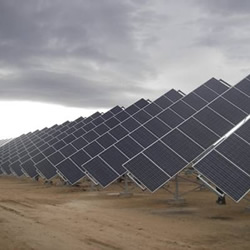Taipei-based crystalline silicon cell producer Gintech is looking at opportunities to expand throughout Southeast Asia, according to an online statement. It opened a 350 MW solar cell factory in Thailand in late 2015, in response to U.S. anti-dumping measures on Chinese and Taiwanese PV products.
In late August, Solar Philippines opened the first PV modules assembly plant in the Philippines. The factory in Santo Tomas, Batangas province, is expected to reach an annual production capacity of 800 MW of solar panels by 2018.
Manila-based Solar Philippines first opened the new production site in March, with an initial operating capacity of 200 MW. It plans to aggressively push its PV modules in the U.S. and Europe, with a global sales target of PHP 10 billion ($197 million) by 2018. It has said that supply deals and other partnerships with Taiwanese companies such as Gintech will be a critical element in its overseas push.
Early last year, Gintech secured a NT$4.2 billion ($139.6 million) syndicated loan agreement from a consortium of banks led by Taiwan Cooperative Bank and First Bank. The company — which reported that its sales fell roughly 30% year on year to NT$6,597 million in the first six months of this year — said the three-year facility would help it pay off debts and shore up its working capital.
Earlier this year, the company signed a deal to provide 30 MW of solar panels to China Steel. The Kaohsiung-based steelmaker is using the modules in a number of rooftop projects that will be rolled out over the next three years.
This content is protected by copyright and may not be reused. If you want to cooperate with us and would like to reuse some of our content, please contact: editors@pv-magazine.com.



By submitting this form you agree to pv magazine using your data for the purposes of publishing your comment.
Your personal data will only be disclosed or otherwise transmitted to third parties for the purposes of spam filtering or if this is necessary for technical maintenance of the website. Any other transfer to third parties will not take place unless this is justified on the basis of applicable data protection regulations or if pv magazine is legally obliged to do so.
You may revoke this consent at any time with effect for the future, in which case your personal data will be deleted immediately. Otherwise, your data will be deleted if pv magazine has processed your request or the purpose of data storage is fulfilled.
Further information on data privacy can be found in our Data Protection Policy.